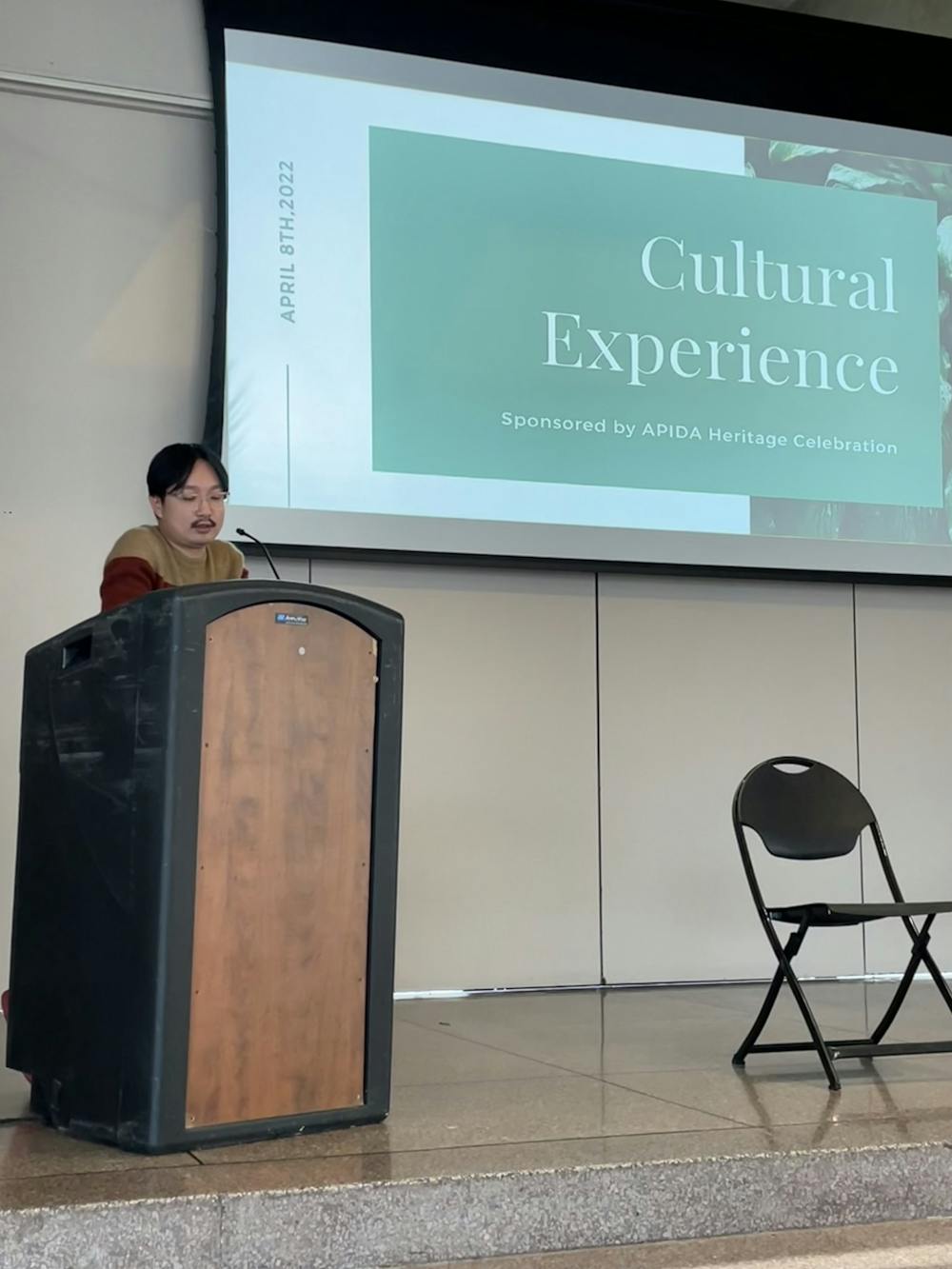The Office of Multicultural Affairs (OMA) hosted poet Chen Chen as part of its Heritage 365 Cultural Experience on April 8. The event was sponsored by Asian, Pacific Islander and Desi American (APIDA) Heritage Celebration and consisted of a reading followed by a Q&A session.
Chen most commonly writes on his dual identity as an Asian American and his experiences as a member of the LGBTQ community. His book When I Grow Up I Want to Be a List of Further Possibilities was longlisted for the National Book Award for Poetry. Chen currently teaches creative writing at Brandeis University.
Chen began by reading a poem by Monica Sok titled “Long Life,“ followed by one of his own titled “holiday.” He then went on to speak on another one of his poems titled “Chen [No Middle Name] Chen,“ recalling a graduate school assignment with instructions to write a poem using only the letters in his name. Given that “Chen Chen” consists of four unique letters, he explained how he made use of the class roster in primary school that displayed his name as “Chen [No Middle Name] Chen.”
In an interview with The News-Letter, sophomore Frank Meng said that as one of the few members of the Inter-Asian Council (IAC) who writes poetry, he volunteered to moderate the event because he saw it as an opportunity to talk to a poet and professor about APIDA heritage through the medium of creative writing.
“We talked about how our APIDA identity influences the processes of writing and poetry,” he said. “He’s Chinese and queer, and I’m also a queer of color and an immigrant, so I really resonate with a lot of sentiments expressed in his poetry.”
Freshman Thành Đoàn echoed Meng’s view in an interview with The News-Letter.
“He’s been a very therapeutic voice in a time of a lot of turbulence that speaks a lot to identities that I connect with and experiences that I thought I had alone,” Đoàn said. "I feel like I have someone to empower me in my daily experiences.”
In response to a question about the process of rewriting, Chen expressed his earlier aversions toward revising poems. He revealed that his views only changed when he began to see rewriting as exploring a poem further rather than simply fixing what was already on the page.
“Once I started to think about it in those terms, I started to realize the real writing happens in rewriting,” he said.
Responding to another question about the role of other poets in his poetry, Chen expressed his desire to write back to and develop a conversation with poets he connects to. He stated that he finds great value in the poetry community and recalled the first Asian American poetry event he attended, where the crowd was told, “You are the future of Asian American literature.”
Chen also spoke on the obstacles he faces as a poet. He expressed his frustrations at knowing that there is something he wants to write about but having to accept that he is not ready yet, either emotionally or on a technical level. He acknowledged that the two are often aligned and sometimes taking space and time can be helpful.
“Ultimately, you need to protect yourself, your art and your headspace so that it doesn’t harm you,” he said.
Meng and Đoàn both expressed their appreciation for the conversational style of the event and the intimate and personal atmosphere.
In an interview with The News-Letter, freshman Ruby Rogers expressed her gratitude at Chen Chen’s vulnerability about his background and childhood, saying that it makes his poems more beautiful to her as he articulates multiple aspects of his identity.
“It was a window into his own culture that I feel really lucky to have experienced,” she said. “I think art is such a great way to share your own identity and understand other people’s identities, and I’m happy to have been a part of an event that uplifts and appreciates the culture and experience of APIDA-identifying people.”





